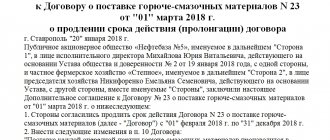How long can a person be kept in a pre-trial detention center before trial?
As an exceptional method of suppressing obstacles to the investigation of a case, placing the accused in a pre-trial detention center is used. The total period of detention in a pre-trial detention center, established in Article 109 of the Code of Criminal Procedure of the Russian Federation , should last no more than two months.
It is understood that during this time all necessary actions for a complete investigation of the circumstances of the case will be carried out. In practice, this period is often extended because new facts arise, witness testimony requires clarification, and so on. For any category of cases, this time period can be extended to six months.
If a person is accused in a case classified as grave or especially grave crimes , then the law allows for an increase in the time spent in a pre-trial detention center to twelve months. The same Article 109 of the Code of Criminal Procedure indicates that an increase in the term is possible only if there are special difficulties in conducting the case. Law enforcement officials will find many arguments indicating the exceptional complexity of the investigation they are conducting.
When it comes to a particularly serious crime, the accused can be held in custody for one and a half years.
However, one should not think that an investigator or judge always strictly adheres to the rule of law. There are often cases when the duration of detention exceeds 2 years .
Justice workers take advantage of the fact that appealing a court decision also takes some time. And writing appeals from a pre-trial detention center can be quite difficult. As a result, the accused are kept in custody for as long as the investigator needs, even if it goes against the rule of law. There is only one way out - to hire a meticulous lawyer who will constantly monitor the process of investigating the case.
Total: 18 months is the maximum period of detention that a person can spend in a pre-trial detention center before trial.
Before sending the case to court, all materials must be transferred to the accused for review no later than 30 days before the expiration of the maximum possible period of detention. If this condition is met, the court will extend the time of detention in the pre-trial detention center for the entire period of familiarization with the case.
For example, the defendant in the case spent 16.5 months in a pre-trial detention center, and the case was handed over to him for review. It took 2 months to study the many volumes. The court will extend the time of detention in the pre-trial detention center on the basis of part 7 of article 109 of the Criminal Procedure Code .
Wages, insurance premiums and benefits
A preventive measure was chosen against an employee performing work on the basis of an employment contract - detention. The inquirer, investigator or judge makes a decision on the selection of a preventive measure, and the court makes a ruling. A copy of the said decision or ruling is handed over to the person in respect of whom it was issued, as well as his defense attorney or legal representative at their request (Articles 5, 98, 101 of the Criminal Procedure Code of the Russian Federation).
Since during the period of detention the employee does not fulfill his official duties, there is no basis for calculating wages, which constitute remuneration for work (Article 129 of the Labor Code of the Russian Federation). There is also no basis for paying average earnings for this period, since this is not provided for by labor legislation. Accordingly, there is no basis for charging insurance premiums to extra-budgetary funds.
According to paragraphs. 3 p. 1 art. 9 Federal Law of December 29, 2006 No. 255-FZ “On compulsory social insurance in case of temporary disability and in connection with maternity”, temporary disability benefits are not assigned to the insured person for the period of detention or administrative arrest. When calculating temporary disability benefits, from the number of calendar days for which it is paid, calendar days falling during the period of detention or administrative arrest are excluded (clause “c”, paragraph 17 of the Regulations approved by Decree of the Government of the Russian Federation of June 15, 2007 No. 375 ).
But if the time an employee is in custody coincides with his non-working periods in which the average earnings are maintained, for example, with the employee’s annual paid leave, then the average earnings are maintained.
How to correctly calculate the period of stay?
The defendants in the case are spared the need to independently calculate the length of their stay in a pre-trial detention center. The court does this for them.
The court order, in accordance with which a person is placed in a pre-trial detention center, must indicate the period of validity of the preventive measure in days or months, as well as the exact end date of this time period. The time spent in custody expires on the last day of the term appointed by the court.
For example, by court decision a person was taken into custody for 2 months on March 1. This means that on May 1 at 24:00 the citizen’s time in the detention center will expire.
The period under review includes the time spent under house arrest, the time of detention as a suspect, and so on.
It should be remembered that the deadlines listed in paragraph 1 of this material refer to the time before the prosecutor transfers the case to court . After this, Article 255 of the Criminal Procedure Code comes into force.
If the accused is already in custody, then the judge will probably not change the measure of restraint. In this case, the risk of the defendant not appearing at the hearing completely disappears. The accused can stay in a pre-trial detention center for up to six months. And for serious and especially serious crimes, the period can be extended for another three months.
In the verdict, the court must indicate the preventive measure, if it considers it appropriate to establish it, for the period the decision enters into legal force.
If the verdict was appealed, it did not enter into legal force . The accused will remain in pre-trial detention until a final verdict is rendered or until the preventive measure is changed.
As you can see, the period of detention in a pre-trial detention center is divided into three periods: before the trial, during the trial, and until the day the verdict comes into force.
If the verdict is guilty, only those days that the citizen spent in custody before the start of the trial will be counted. Part 3 of Article 72 of the Criminal Code clearly states : all days spent in the detention center after the start of the proceedings are not taken into account in any way.
The draft law on introducing completely logical amendments to this article, providing for the recording of absolutely all days that a citizen spent in a pre-trial detention center, has been considered in the State Duma since 2008.
System for counting days in a pre-trial detention center when assigning punishment
The legislation has an extensive range of punishments for persons who have committed a crime. In accordance with Article 72 of the Criminal Code, days spent in a pre-trial detention center are counted:
- One to one in terms of imprisonment, arrest, forced labor and detention in a disciplinary military unit;
- One day in a pre-trial detention center for two restrictions on freedom;
- One to three days of correctional labor and restrictions on military service ;
- One day to eight hours of compulsory work.
This is not the first year that there has been a discussion about the fairness of the system presented in the criminal law. It is not without reason that it is believed that detention in a pre-trial detention center involves consequences that are more negative than imprisonment in a regular colony. In a pre-trial detention center, a person spends a lot of time in a closed room , often overcrowded, and does not have the opportunity to work. The State Duma is considering the possibility of counting one day in a pre-trial detention center as the equivalent of one and a half days spent in a general regime colony and two days in a settlement colony.
In the summer of 2015, consideration of such changes was frozen for unknown reasons.
Journalists attribute the delay to the amnesty in connection with the 70th anniversary of the victory: if those who are released due to the recalculation of the terms of detention in pre-trial detention centers are added to those amnestied, then hundreds of thousands of people will be released from prison. Perhaps in 2021, the interest of parliamentarians in this problem will increase again, and the law will still be adopted.
Additional Weapons
The decision on release for the re-credited period will be made by the court, the author of the bill assumes: the court will be obliged to request from the institution information about the penalties of the convicted person, and in the absence of them, make a decision on release, explains Krasheninnikov.
“We now have a complete equalization - whether it’s house arrest or a pre-trial detention center, and it doesn’t matter what kind of regime a person received. But I was in different institutions - these are completely different conditions, different lives, different ecology in the literal and figurative sense. Taking into account the fact that in our large cities half of the pre-trial detention centers were built even before the revolution, it is simply impossible to be there, especially in the summer,” Krasheninnikov commented.
The initiative is especially important for business, the parliamentarian is convinced: “We know that arrest is actually a punishment before a sentence, and such a punishment allows you to extract any testimony. Unscrupulous law enforcement officers, of course, take advantage of this.”
“The bill is truncated and, moreover, disregards the position of the Constitutional Court on house arrest. The Constitutional Court has said more than once that house arrest is an exceptional measure, the same in importance as custody. People who have been under house arrest will confirm that the difference is only in the conditions, and both psychologically and physically it is all very difficult. In any case, you lose social connections and business, and in the end it turns out that you spent a year under house arrest and that turned into just six months in prison,” Alexey Fedyarov, head of the legal department of the Sitting Rus' organization, told RBC.
According to him, the amendments could turn into an “additional weapon” and become a “repressive measure” against businessmen, for whom they often try to choose house arrest as a preventive measure: “A person will understand that in a pre-trial detention center he was at least day after day going towards strict regime."
How is the period of maintenance calculated?
The time spent by the accused in the pre-trial detention center is read directly into the guilty verdict .
In the operative part of this document, the judge must indicate not only the amount of the punishment, but also its final measure, taking into account the number of days already spent in places of deprivation of liberty.
Unfortunately, a clear time frame for keeping a person in a pre-trial detention center is not defined by law. Many cases go through appeals, stages of additional investigation, and the accused continues to be in custody all this time. We can only hope that the Russian parliament will soon consider amendments to criminal legislation, and this problem will be solved.
Why is this law needed?
Conditions of detention should not be more severe than the punishment that the court can impose - this is the position of the European Court of Human Rights.
Back in 2008, this was indicated in the explanatory note to the bill. The conditions in a pre-trial detention center are more stringent than in a general regime colony or a colony-settlement. In a colony, a person spends a lot of time in the fresh air, he can work and study. In a pre-trial detention center, apart from a short walk in a small courtyard, a person is in a confined space.
In accordance with the law, the preliminary investigation must take place within two months, but there are many opportunities to extend it - up to a year or more. When the investigation is completed and the prosecutor's office has approved the charges, the case is sent to court - which can also take months. All this time the arrested person can be kept in a pre-trial detention center.
The explanatory note also speaks of the “current lack of opportunity” to bring conditions in the pre-trial detention center in line with international standards. This problem is still relevant today, so the “preferential” credit for time spent in a pre-trial detention center is also a form of compensation for people for being kept in inappropriate conditions.
Who will sit longer because of the new law?
The new law worsened the situation of some convicts. Firstly, he equated two days under house arrest to a day in custody and imprisonment. Previously, a day in custody was considered a day locked up at home.
Secondly, “time flows” according to the one-to-one formula for convicts who end up in penal colonies in a punishment cell or a cell-type room. Practice shows that it is virtually impossible to challenge the imposition of disciplinary sanctions on prisoners - who are brought to isolation wards.
There are many examples when prisoners, through the courts, on the initiative of jailers, have their conditions of detention tightened: for example, from a settlement to a general regime or from general to strict. Such measures were applied to anti-fascist Alexei Sutuga, nationalist Igor Stenin and other political prisoners.
And this, too, is virtually impossible to dispute. If previously this led to a deterioration in the conditions of imprisonment, now it will lead to the fact that “undesirable” prisoners will serve even longer than they could.
Who won't get their deadlines recalculated?
- Convicted of repeat crime;
- Those sentenced to death - if the exceptional measure was replaced by life imprisonment or 25 years of imprisonment. Since 1996, Russia has had a moratorium on the death penalty.
Convicted under articles:
- About terrorism, promoting terrorism, calls for terrorism, undergoing training to commit terrorist attacks, participation in a terrorist community or organization, an act of international terrorism;
- About the taking of a hostage by an organized group, or resulting in the death of a person, as well as about the hijacking of an aircraft associated with terrorist activities.
- On the illegal production, sale or transfer of drugs, as well as the acquisition, storage, transportation, manufacture, processing of drugs on a large and especially large scale.
- About drug theft or extortion
- About high treason and espionage, an attack on the life of a statesman and public figure, violent seizure of power, armed rebellion, as well as attacks on persons and institutions enjoying international protection.










